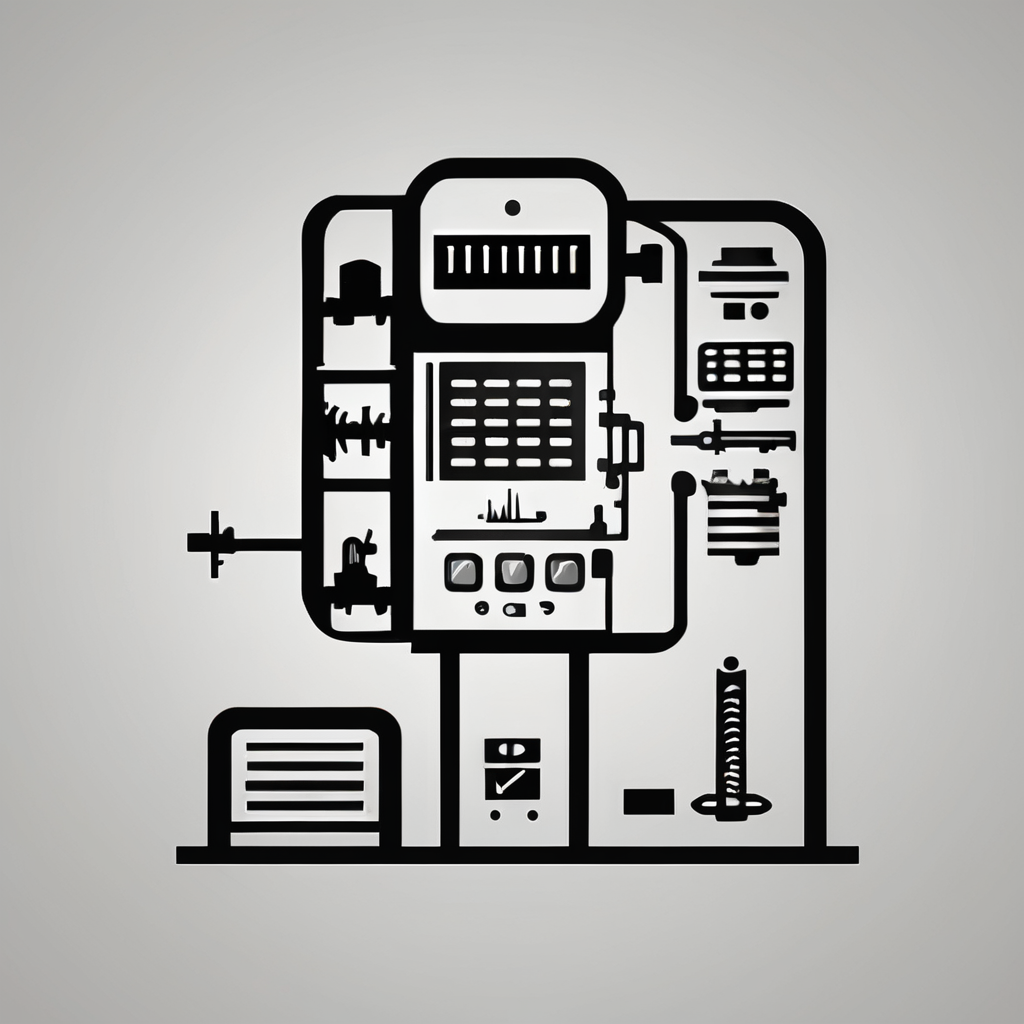Overview of Current Trends in UK Computing Hardware
In recent years, the UK has witnessed remarkable advancements in computing hardware, setting new benchmarks for technology innovation. A noteworthy trend is the rise of quantum computing research, which holds the potential to revolutionize processing power exponentially. While still in development, quantum computing is gaining traction, with several UK companies at the forefront of this revolution. These companies are pioneering efforts that promise to break traditional computing barriers.
Artificial Intelligence (AI) integration into hardware has also significantly impacted the market. AI technologies are not just enhancing computing performance; they are redefining how hardware interacts with software, making systems more efficient and intuitive. The enhancement of computing capabilities through AI is a critical factor for industries looking to improve operational efficiencies.
Also read : What role does UK computing hardware play in cloud infrastructure?
The microprocessor industry is also experiencing substantial innovation in the UK. Key players, such as ARM Holdings and Imagination Technologies, are at the center of developing next-gen microprocessors that are smaller, faster, and more energy-efficient than their predecessors. These innovations in microprocessor design are particularly influential in sectors such as mobile technology, where performance and battery life are crucial.
Market analysis shows that these innovations in UK computing hardware notably impact various sectors, including finance, healthcare, and telecommunications. As hardware technology evolves, these industries are poised for significant transformation, establishing the UK as a global leader in upcoming computing trends.
Also read : Exploring the impact of ai integration on the evolution of uk computing hardware
Detailed Analysis of Cutting-Edge Technologies
The UK is at the forefront of cutting-edge technologies in the computing hardware realm, witnessing dynamic transformations across various sectors.
Quantum Computing
Quantum computing presents a groundbreaking shift with its promise of unparalleled processing capabilities. Unlike traditional computers that use bits, quantum computers operate on qubits, enabling them to perform complex calculations exponentially faster. This leap in computational power is particularly beneficial for solving intricate problems in sectors like cryptography and materials science.
Artificial Intelligence Integration
The integration of Artificial Intelligence (AI) into computing hardware is revolutionising system interactions. AI enhances processing efficiency, automating tasks and learning from real-time data. This seamless software-hardware interaction leads to smarter, self-improving systems, crucial for industries aiming to boost productivity and reduce costs.
Microprocessor Innovations
Microprocessor advancements in the UK are spearheaded by leading firms that innovate designs focusing on size, speed, and energy consumption. These microprocessors are pivotal in enhancing mobile technology, contributing significantly to improved user experiences through faster processing speeds and longer battery life. This continuous evolution in microprocessor design is reshaping how devices function, making them more efficient and responsive.
Expert Opinions and Industry Insights
Understanding the intricacies of the UK computing hardware market requires insights from industry experts who help illuminate the trajectories in innovation and implementation. Leading authorities in the field provide valuable commentary on the current direction of computing innovations in the UK, allowing for a nuanced understanding of trends and motivations driving technological progress.
Industry analysis reveals that thought leader perspectives emphasize the importance of collaborations between academia and industry. Such partnerships are vital for advancing research and development, leading to breakthroughs in areas like quantum computing and AI-integrated solutions. These collaborations harness collective ingenuity to push boundaries and propel the UK to the forefront of technological advancements.
Case studies serve as pivotal tools in showcasing successful implementations of new technologies. For instance, several firms have effectively integrated state-of-the-art microprocessors into industry solutions that enhance operational efficiency. These real-world applications exemplify how concerted efforts and expert insights lead to measurable performance improvements across various sectors.
Looking to the future, predictions from experts provide a forward-looking perspective on impending trends and their potential impact. The consensus suggests a robust expansion in the market, with anticipated growth in computing capabilities transforming consumer and business experiences. Experts predict that these advancements will continue to shape industries, driving greater connectivity and innovation.
Real-World Applications of New Hardware
The integration of new hardware innovations has profound implications for multiple sectors, with novel applications reshaping industries in transformative ways. Here, we explore how these technologies are being applied in real-world contexts to drive progress and efficiency.
Transformations in Healthcare
The healthcare sector is experiencing a revolution, with advanced UK computing trends fundamentally altering diagnostics and treatment methods. Enhanced data processing speeds and AI integration into equipment are enabling more precise patient diagnoses. Market analysis reveals that this shift not only improves patient outcomes but also optimizes operational efficiencies within healthcare facilities, ensuring quicker and more accurate results for healthcare professionals.
Advancements in Education Technologies
In education, the accessibility and functionality of learning tools are evolving rapidly, thanks to innovations in computing hardware. Cutting-edge technologies are being employed to create interactive and immersive educational experiences, enhancing student engagement and understanding. Schools and universities are increasingly leveraging advanced hardware solutions to facilitate virtual laboratories and simulations, providing students with hands-on learning opportunities that were previously unimaginable.
Innovations in Gaming and Entertainment
The world of gaming and entertainment is witnessing remarkable advancements, largely due to new hardware capabilities. Enhanced graphics and processing power are contributing to more realistic and responsive gaming experiences. As hardware comparisons highlight, these developments in GPU and CPU technologies are enabling developers to push the boundaries of what’s possible in digital storytelling, offering audiences more immersive and interactive content.
Across these sectors, the application of state-of-the-art hardware is driving significant transformations, illustrating the practical benefits and diverse potential of these technological advancements.
Future Developments and Implications
The landscape of UK computing hardware is on the cusp of revolutionary change, with upcoming technologies poised to redefine industry norms and consumer interactions. Several potential advancements are on the horizon, where quantum computing and AI are expected to play pivotal roles. Notably, the development of more energy-efficient processors and environmentally conscious manufacturing practices is anticipated to gain traction, driven by increasing regulatory pressures and the global emphasis on sustainability.
In terms of regulatory and ethical considerations, the rapid pace of technological innovation brings challenges that need addressing. Ensuring data privacy and cybersecurity remains paramount, particularly as computing capabilities grow. Ethical considerations involve managing AI bias and ensuring that advancements do not inadvertently widen technological gaps within diverse population groups.
Future hardware trends have the potential to profoundly reshape industries. For instance, enhanced processing power can revolutionize real-time data analytics in the finance sector, while in healthcare, it could lead to personalized medicine becoming a standard practice. Consumer behaviours, too, are likely to evolve, with expectations for seamless, intuitive technology experiences pushing companies towards continuous innovation.
As these technologies develop, businesses and policymakers must collaborate to navigate the intricate landscape of future computing trends, balancing innovation with responsibility. This is imperative to ensure that advancements serve to benefit society broadly, promoting inclusivity and equitable access to hardware innovations.
Visual Data and Supportive Statistics
In exploring the dynamic landscape of UK computing trends, data visualization plays a crucial role in conveying the pace and scope of hardware innovations. Recent market statistics illustrate a notable upward trajectory in computing hardware investments, with significant growth particularly evident in quantum computing and AI-based solutions. This pattern is graphically exemplified by charts comparing year-on-year development, highlighting increased spending and adoption rates across sectors.
Moreover, consumer adoption of these new technologies is on the rise, as evidenced by statistical analysis reflecting the proliferation of cutting-edge technologies in everyday applications. Infographics depicting adoption rates, such as those in healthcare and education, underscore the widespread integration of advanced computing tools. These visuals provide supportive evidence of technology impact, demonstrating how modern hardware solutions are revolutionizing industry operations and consumer interfaces.
In summary, the statistics and visual data provide an empirical baseline for understanding the sweeping changes within the UK computing hardware landscape, offering a detailed overview of growth patterns and market analysis foundational in guiding future industry directions and consumer engagements.


